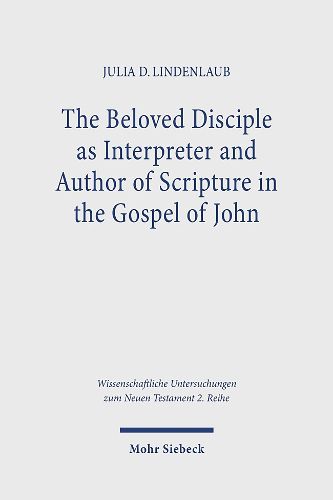Readings Newsletter
Become a Readings Member to make your shopping experience even easier.
Sign in or sign up for free!
You’re not far away from qualifying for FREE standard shipping within Australia
You’ve qualified for FREE standard shipping within Australia
The cart is loading…






Julia D. Lindenlaub presents the Gospel of John's deliberate emphasis on its status as a written literary composition as modelled on antecedent esteem for authoritative written texts in ancient Judaism. The gospel's creative representation of its authorship reveals a correspondence between scripture and gospel and therein an overlooked motivation for its preoccupation with the written medium. The Gospel of John attributes its authorship to the work of a "beloved" disciple, whose role in the story presents him as both writer of the gospel and competent reader of texts from the Jewish scriptures. The author evaluates this figure's interpretation of these writings alongside his claim to compose a text in the same tradition. The argument presented reveals how the gospel's concern for referring to its written medium distinguishes it as "scriptural" in the sense of its Jewish predecessors.
$9.00 standard shipping within Australia
FREE standard shipping within Australia for orders over $100.00
Express & International shipping calculated at checkout
Julia D. Lindenlaub presents the Gospel of John's deliberate emphasis on its status as a written literary composition as modelled on antecedent esteem for authoritative written texts in ancient Judaism. The gospel's creative representation of its authorship reveals a correspondence between scripture and gospel and therein an overlooked motivation for its preoccupation with the written medium. The Gospel of John attributes its authorship to the work of a "beloved" disciple, whose role in the story presents him as both writer of the gospel and competent reader of texts from the Jewish scriptures. The author evaluates this figure's interpretation of these writings alongside his claim to compose a text in the same tradition. The argument presented reveals how the gospel's concern for referring to its written medium distinguishes it as "scriptural" in the sense of its Jewish predecessors.